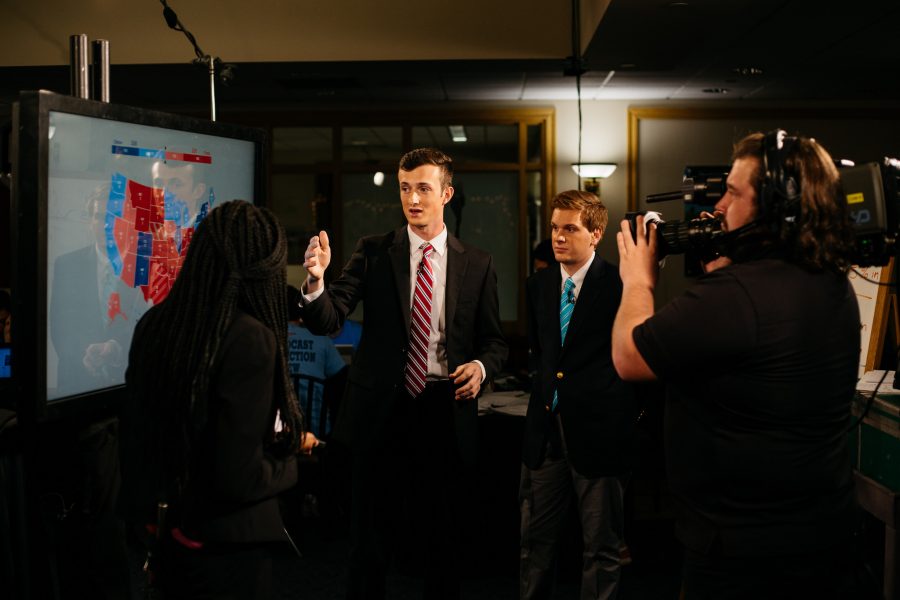Participating in the “First Vote in a Polarized Age” 2016 election broadcast by the policy studies program was a “once in a lifetime opportunity” for Chris Burns ’19. The broadcast certainly impressed as it earned another honor with the Engaged Learning Award from NETA, the National Education Telecommunication Association Conference, last week. The broadcast was previously nominated for an Emmy award from the Mid-Atlantic chapter of the National Academy for Television Arts and Sciences in the category of College/University Student Production- Talent.
“[It was] some of the most engaging and enjoyable times I’ve had at Lafayette,” Burns said.
As the political analyst on the broadcast, Burns give would updates on what happened during the Presidential race, key senatorial, House races and local Pennsylvania races.
Burns said that this award “affirms that the work so many students [did] really paid off.”
He added that the help from PSB39 and policy studies professors Mark Crain and Nicole Crain really made a big difference.
“We had strong leaders to guide us through the intricacies that make a project like this great.”
Political director for the broadcast Benjamin Janacek ’18 said that he took part in the project because he is a total “political junkie.”
“It was, without question, the coolest experience I’ve had at Lafayette. It was awesome to not only work so closely with students and faculty, but also with PBS executives in producing a real product that real people were going to see,” he added.
Janacek said that because he was part of the broadcast, he was able to secure internships, get into law school and improve his educational and leadership skills.
“The entire broadcast experience was a great educational tool. It helped me hone my leadership skills, work well with a team and be able to work in some high-pressure situations under strict deadlines. It felt like, and was, real-world experience in a lot of ways,” he said.
Janacek said he is proud of everyone for putting aside their political opinions in order to provide “a fact-based, objective broadcast to an audience.”
He said, “I think it was great to see everyone check their personal beliefs at the door and work together in pursuit of a shared objective. We could certainly stand to have more of that way of going about things in the world.”
Burns especially praised the cohesive bonds the team formed.
“Being in such a collaborative environment with so many people that deeply cared about the political direction our country was taking was really incredible to be a part of,” he said. “When you’re part of an environment like that, it really brings the best out of everyone involved and playing a role in that environment was incredibly rewarding.”


















































































































